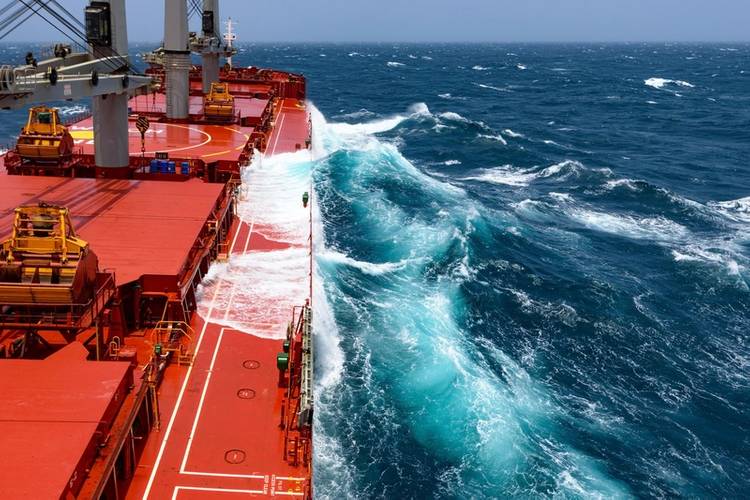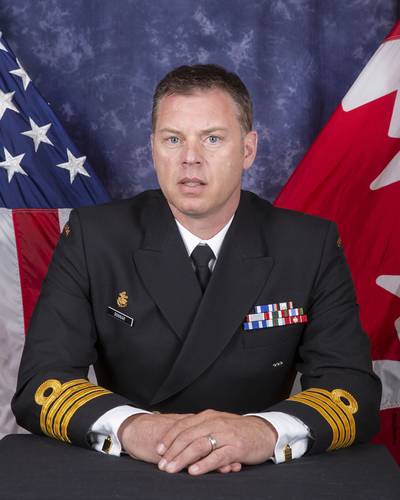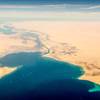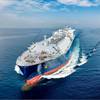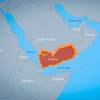Mitigating Maritime Risk
“The First Steps in Mitigating Contemporary Risks to our Strategic Sea Lines of Communication”
It is indisputable that the world’s economy floats on seawater. It is equally indisputable that international maritime transportation is the tool that keeps the global economy moving. The world economy has surged over the last half century, and that growth has been largely driven by globalization and the consequent reduction in barriers to trade. Any operational disruptions in maritime transportation have wider consequences for society, making the management of the associated risks a priority that should transcend industry and national boundaries.
The maritime transportation sector’s symbiotic relationship with the global economy means that the risks faced by the industry are influenced by factors beyond its control. Increasingly complex trade markets, regulatory frameworks such as the EU in a state of flux, the inexorable march of technological risks caused by advanced cyber threats and geopolitical shifts as seen in Europe and the Middle East are all example of these extant risks to the global economy. Far from being isolated in silos, these factors are in constant interplay in complex relationships that are difficult to understand, let alone predict despite increasingly advanced data analytics tools and the introduction of Artificial Intelligence (AI) in business strategies and work flows.
Clearly, an increasingly connected world requires a maritime community response to the many interconnected risks in the maritime commons.
The numerous processes of coordination and cooperation in the field of international maritime security are based on acceptance of the importance of the world’s seas and oceans to the wellbeing and prosperity of the people that depend on them. This close link between the security and safeguarding of the seas and the development and economic wellbeing of whole societies drives natural partnerships. The world’s navies and the international maritime community share concern over safeguarding strategic sea lines of communication owing to the increase in illicit uses of these waterways. Their physical traits make it a particularly conducive environment for activities that seek to evade the authority of States, or from legitimate end-user stakeholders, and aim to undermine regulatory compliance and general stewardship.
Trans-national phenomena such as terrorism, organized crime, the proliferation of weapons of mass destruction or even hybrid warfare, sometimes interrelated, have an undeniable maritime dimension and impact the global economy. It only stands to reason then that human migration, climate change and challenges to a world order based on free markets, human rights and the rule of law must be addressed by the relevant organizations, especially in the field of maritime security and for this we need a common maritime strategy.
As Rear Admiral JC Wylie, USN explains in his original exposition of cumulative and sequential strategies of the early 1950s, maritime strategy is “one in which the world’s maritime communications systems are exploited as the main avenues by way of which strength may be applied to establish control over one’s enemies”. What the Admiral was referring to is the basic tenet of establishing sea control as the foundation of a maritime strategy. The establishment of sea control has two critical conceptual components – ensuring one’s own use of the sea and denial to the enemy of their use of the sea. If we look at transnational criminals, smugglers, pirates and environmental polluters as common “enemies”, we can see a path to developing the framework for this common maritime strategy starting to emerge.
In the maritime domain this immerging strategy requires an understanding of time, space, risk, oceanography, the global supply chain, critical infrastructure and the environment, as well as an understanding of the nature of the risk, and the capabilities, readiness and location of multi-agencies assets capable of responding to or assisting with risk mitigation efforts. The repeated outgoing message from annual maritime security roundtables and conferences such as the CJOS COE Maritime Security Regimes Roundtable, held annually in April in Norfolk, VA and the USCG’s Maritime Risk Symposium, held annually in the fall is that the maritime community needs better cooperation and situational awareness between key stakeholders and regimes (merchant shipping community included) as the first critical step in widening the path to success.
Security in the global maritime commons is not a given. Without a comprehensive, shared understanding of what is occurring in the maritime domain, achieved through Maritime Situational Awareness (MSA), vital opportunities to detect and mitigate threats or critical vulnerabilities at the earliest opportunity may be lost. A comprehensive MSA network is required to facilitate information sharing and can only be established with the cooperation of law enforcement, military forces and the international maritime transportation industry.
The lack of modern and agile global and regional governance structures has generated friction between the globalized corporate sector, maritime authorities and policy-makers that undermines the maintenance of relationships necessary to enhance. In an increasingly inter-connected, inter-dependent and rapidly changing globalized world, there continues to be an absence of persistent relationships between the ever-increasing number of key stakeholders in the global maritime community of interest. Operating according to disparate mandates, objectives, areas of responsibility and jurisdiction, there is an obvious need to develop a shared network and develop a collaborative contribution to achieve a comprehensive MSA capability in which all stakeholders’ requirements are met and enhanced. Consequently, the Combined Joint Operations from the Sea Centre of
Excellence is acting with key partners, such as the United States Coast Guard and State University of New York, to advance the interests of the maritime community and to promote information exchange and networking across all stakeholders through discussion at venues such as the Maritime Risk Symposium and the Maritime Security Regimes Round Table.
There is important work to be done by all. Operating within this shared network is invariably more challenging than acting independently; this is exacerbated by the complexity and sheer volume of information being processed. A lack of common tools and vernacular in which stakeholders operate makes the need for standardization critical; however, adapting policy, tools or operating procedures takes commitment, effort and investment. There are naturally certain national and commercial barriers to overcome, but generating confidence and trust among members through dialogue and persistent partnerships, over time, will facilitate the necessary cooperation.
In the words of former US President Barack Obama “if you are walking down the right path, and you are willing to keep walking, eventually you’ll make progress.” You can take your first step down that path by joining us at the Maritime Risk Symposium in New York in October or the Maritime Security Regimes Working Group. Information can be found at https://www.linkedin.com/groups/12242340/.
10th Annual Maritime Risk Symposium
The 10th Annual Maritime Risk Symposium is scheduled to be held November 13-15, 2019, at SUNY Maritime in New York. For additional information visit: www.sunymaritime.edu/MRS2019





